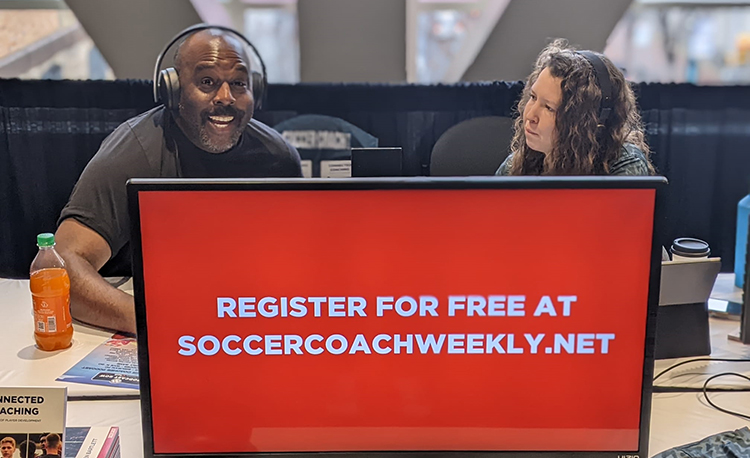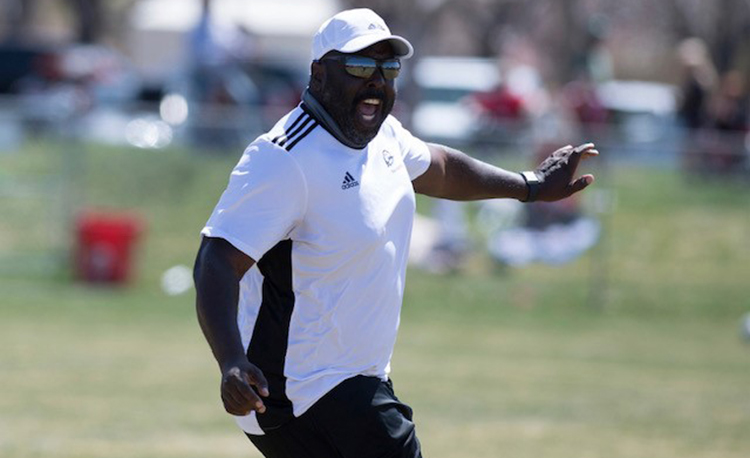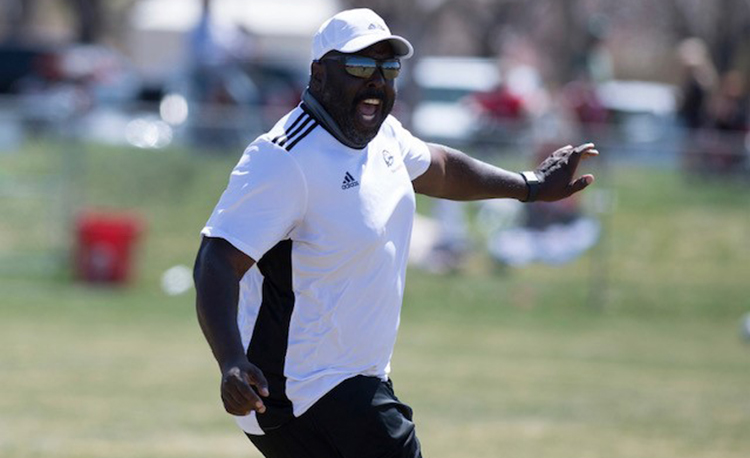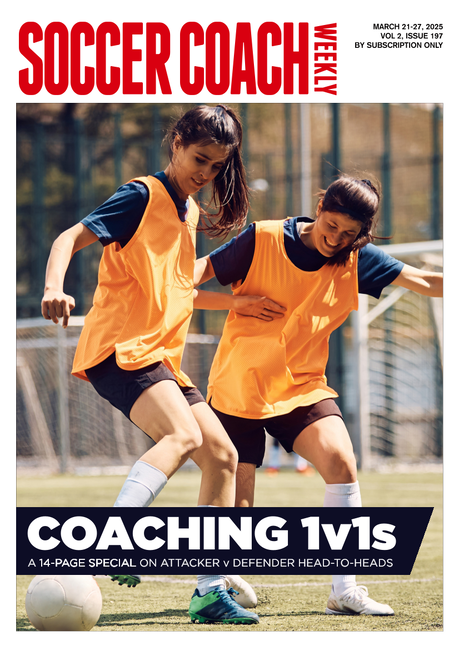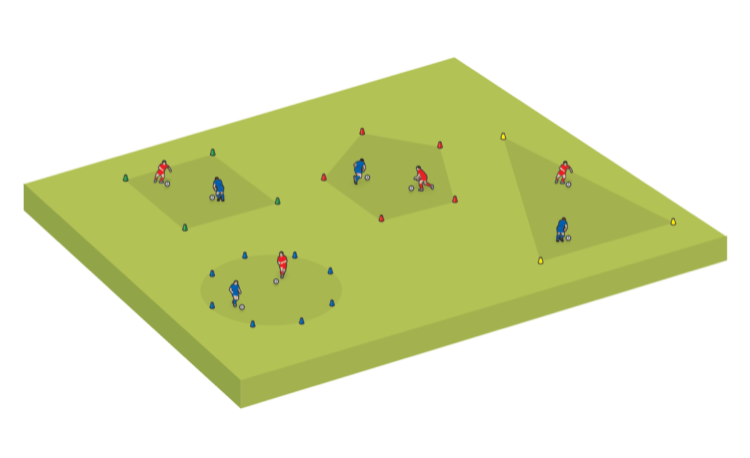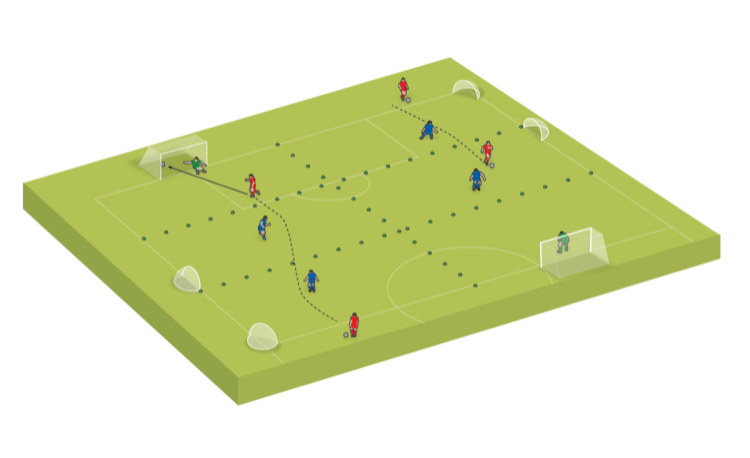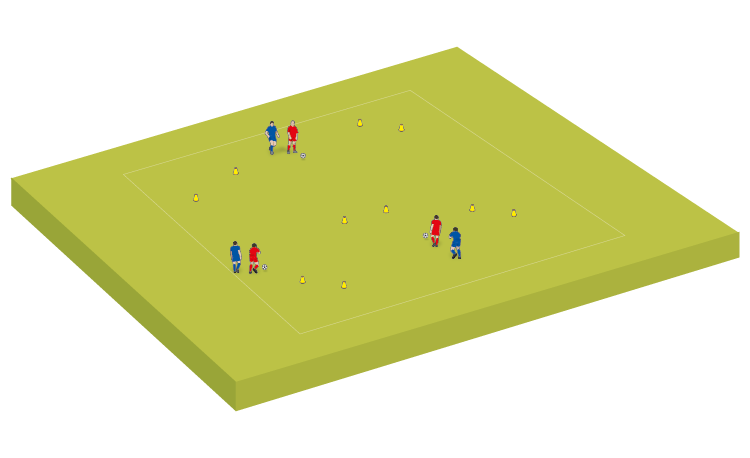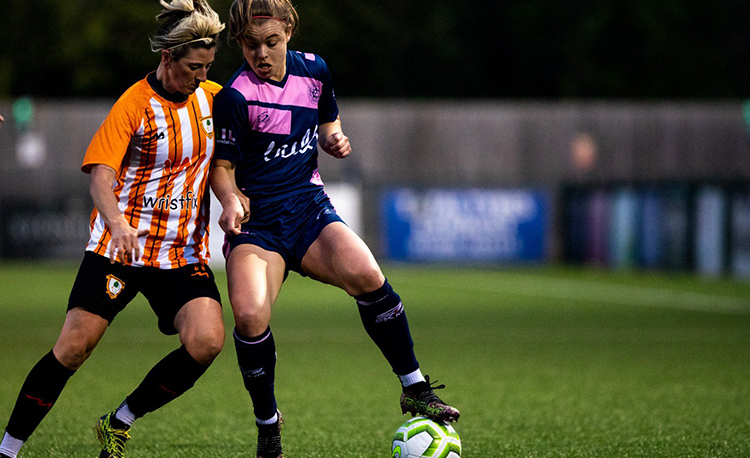Kai Edwards: 'A humbling helped me be more human'
Southern Utah Thunderbirds head coach Kai Edwards on ’failing miserably’ and his subsequent reinvention as ’Kai 2.0’, in a chat with Steph Fairbairn
The first team Kai Edwards ever coached was a group of under-12s that included two players who would go on to be US World Cup stars: Kristen Press and Whitney Engen.
He is currently head coach at the Southern Utah Thunderbirds, leading the team to its most successful ever season in 2022.
In between those coaching gigs, Edwards, in his own words, "worked, competed, failed, got dropped out, and came back in".
When he joined us on podcast row at the United Soccer Coaches Convention in Philadelphia last week, Edwards explored his journey in more depth, talking about how he manages his ego, why he is no longer a "transactional" coach and how important it is to be human…
SCW: How do you like your sessions to look?
KE: "I want them to be drained by the end of it, emotionally. You [want to] set up a session that makes them want to pour their heart in, and their mind in.
"I always tell them: ’You might not always be physically done, but, if we’re doing our job, you should feel like you gave everything out of your heart, out of your soul, out of your mind, and be emotionally drained because that’s what the training elicited.
“I think most people would say, ’When you play a Kai-coached team, there’s passion. You’re going to feel it from them in the way they play and what they do’.
"I like that to come out of a session, along with the peer intellect of ‘why did we do what we did?’.
"[I want to] be able to stop a student athlete at any point and say, ’why did you make that decision?’. The decision could be right, but [I want you] to have the personal confidence to answer the question because you did it for a reason."
SCW: How much of that is about soccer and how much of it is about being a human?
KE: "It’s a combination of both. I think it’s important to know when it is more important to be [on] the human side, but then there are moments where the soccer is important.
"It can’t be at the downfall of the human, but there are moments where tactics and the understanding of cohesive ideas matter.
“I think it’s understanding what is important in each moment. I always tell people I’m a Libra [represented in astrology by scales], so part of what I do is try to be as balanced as possible and understand what the moment calls for, and do what the game and the moment needs, not what I want to do.
"When you’ve beaten top 25 teams, and you’re not allowed to coach, it’s humbling..."
“I think that was one of my biggest shifts as a coach in the last five years. It’s always what I wanted to do - ’this is what I wanted out of the session, this is what I wanted out of the player’.
Now it starts to go, ’what does the moment need?’. Not me forcing a moment, but reading the moment."
SCW: How did you develop that?
KE: "I failed miserably. I was probably more of a transactional coach at a time. I failed and my contract wasn’t renewed and I had to reinvent myself.
"I went and worked at other places and learned a new approach and a new way to do things - still to get to the same final point I was trying to get to, but in a more efficient and positive way.
“I also had very good friends that told me I failed and didn’t kiss my butt and tell me, ’It’s the athletic director’s fault’. I think that really helped me look at myself. I was a Division I head coach, who went back to being a volunteer director of operations.
“Not being able to coach and just watch training sessions is humbling. When you’ve won games, and you’ve beaten top 25 teams as a coach, and now you’re not even allowed to coach and you’re just watching, it’s very humbling. But it was what was needed.
“Hopefully no one has to fail, but when you do fail, when you have belief in yourself and other people believe in you, but also can give you the crucial conversation and be real with you, I think that’s important.
"I think so many people fluff things up to make sure everyone feels good and then they keep creating the same problems."
SCW: How do you keep the ego locked away for a bit to get to that reflection and learning you’ve been talking about?
KE: "I think the NCAA and sports will humble you. Do I have an ego? Of course. I want to win everything. I want to out-coach people. I want to do the best.
"But when you don’t do it the right way and you aren’t successful, administration or your own players will humble you real quick, by either not playing hard for you, or losing you your contract, or whatever. So instead of saying ’it’s their fault’, you have to look and say ’why was it my fault?’.
"I take blame on many things. A kid leaves my team - they could be homesick, but why didn’t we make it more of a home for them? Why didn’t we check in with them more?
“Was it playing time? Okay, then why didn’t we show value - even in five minutes of playing time - to them?
"Do I always get it right? No. But it’s always self-reflection. It’s on me. How can we make it better? Then outsourcing that information when you don’t know.
"What I do more now than I ever did before is ask the players. I ask: ’How was the session? You don’t have to tell me what you think I want to hear. Tell me’.
"I have a couple of players that say, ’It got a little clunky, I was working hard, but I didn’t really understand it’.
“[I ask] ’What part didn’t you understand?’ and give them permission to analyze me. My ego isn’t so big that I’m afraid of someone saying, ’your session sucks’.
“You can’t just have the comment, you have to say why. But in that reflection is when we grow."
SCW: Do you think it’s important we show that side as coaches, because we want our players to feel safe and that they can make mistakes?
KE: "I would say, in my first five to 10 years [of coaching], I wasn’t a human, I was a coach. I had no feelings, that’s who I was.
"I think having a three-year-old daughter and a one-and-a-half-year-old helps now. But I think it happened before that.
"I’ve stood in front of my team and said, ’I messed up. I didn’t coach you right. You weren’t set up to be successful’.
“I rarely yell, but I yelled in one practice. I sent an apology to the whole team [and] to the two kids it was directed at, and then said, ’If you want to talk to me further, or you have any other questions, come in and talk’.
"I’m on Kai 2.0. Kai 1.0 was a machine, but now there’s a human element to it..."
“I make mistakes. It wasn’t personal and I’ll do my best for it to never happen again. I think it shows I do have a human element, whereas before I thought it was important to show that you didn’t.
“I always say I’m on Kai 2.0. Kai 1.0 was a machine. No-one outworked me, I did everything. [Now], still no-one’s going to outwork me, but there’s a human element to it.
“I think because of that, I can actually push them to another level because I am no longer superficial with them."
SCW: You’ve talked a lot about how you’ve changed. How have you seen the landscape of the game change?
KE: "It’s become more data-driven. Sometimes people are becoming robotic - ’the data says this, so I must do that’.
"I wish we still had the human element. It’s an art, it’s a game. Yes, there’s a science to it, but the art of understanding and knowing, I wish that would come back.
“But I also like the fact that if you you’re coaching against a data-driven coach, the game is going to tell you which one was right on the day.
“I’ve seen a lot of data-driven people becoming more emotionally vulnerable to their players, and the players back to the coaches, but then also a lot of player shifting and being able to be good at managing roster change and people being more mobile - assistant coaches being more mobile, administration and players all being more mobile and changing places.
“You have to be comfortable when things change and still be able to stick to your values and core strengths when the people might change."
Related Files
Newsletter Sign Up
Coaches Testimonials
Subscribe Today
Discover the simple way to become a more effective, more successful soccer coach
In a recent survey 89% of subscribers said Soccer Coach Weekly makes them more confident, 91% said Soccer Coach Weekly makes them a more effective coach and 93% said Soccer Coach Weekly makes them more inspired.
*includes 3 coaching manuals
Get Weekly Inspiration
All the latest techniques and approaches
Soccer Coach Weekly offers proven and easy to use soccer drills, coaching sessions, practice plans, small-sided games, warm-ups, training tips and advice.
We've been at the cutting edge of soccer coaching since we launched in 2007, creating resources for the grassroots youth coach, following best practice from around the world and insights from the professional game.
